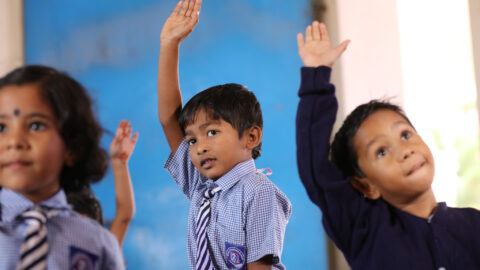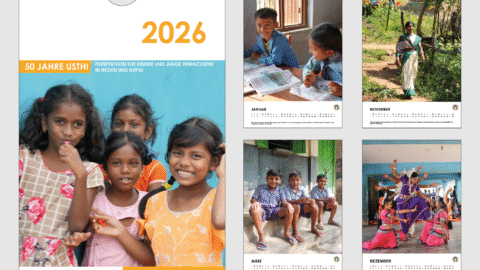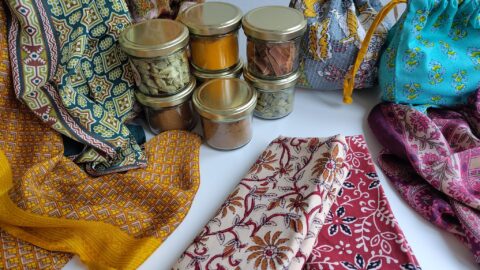In the remote region of Dhading, the journey to school is long and arduous. Many children walk for several hours to attend classes. An impossible undertaking for children with visual impairments. For this reason, over 20 children with visual impairments live in a hostel on the campus of one of the project schools in the Dhading district so that they can attend school there. At the beginning of 2025, Usthi and its Nepalese partner organisation made extensive investments to provide holistic support for the children.
There are currently 22 children living in hostel at Janajagriti School. The children and youths are between five and 20 years old and attend regular classes in grades one to ten together with other schoolchildren. Although the children are able to take part in regular classes thanks to the inclusive teaching model, there is a lack of resources and knowledge to ensure that the lessons are tailored to their needs. Usthi therefore supports the efforts of the school and the hostel to promote the children’s independence, to enable them to grow up well and to be able to organise school lessons according to their needs.
Making everyday life for children more inclusive
An important aim of the investment is to provide needs-based education for children with visual impairments. Numerous new teaching tools have been purchased, such as Braille paper and books, reading aids and tactile learning materials. In the coming months, workshops will be organized together with experts from the Nepal Association for the Welfare of the Blind for children, teachers and hostel staff, in which further ideas for the use of learning aids and inclusive teaching methods will be learned and deepened. One simple but effective method, for example, is for the teachers to say out loud everything they write on the whiteboard. This enables children with visual impairments to follow the class properly.

In addition, minor and major repairs to the hostel’s infrastructure have been on the agenda for some time. Over the past few months, a lot of work has been done: tiles have been replaced, cables laid, plumbing work done, a washing machine installed, a solar panel repaired and much more. In addition to the building work, the hostel team has gone to great lengths to make the rooms fresh and homely. The kitchen was given additional plates and cups, worn mattresses were replaced with new ones and the reading room was furnished with new furniture.
Promoting children holistically through active leisure programs
Thanks to the investments, the home now offers more space for movement, creativity and independence in everyday life. The children can borrow new sports equipment, the range of games and books has been significantly expanded, and some musical instruments have been organized at their wish. The Janajagriti School and the local authorities are also involved in supporting the visually impaired children. For example, they provide additional teachers for leisure activities. Once a week there are now music and sports lessons, which are not only fun but also stimulate various senses.
There have also been innovations in digital support: The computer room has been expanded by four devices, and a specialist regularly supports the children in developing their digital skills – so that they can keep pace with technological developments.

Joint efforts to create an inclusive environment
In the past few months, important steps have been taken to make the children’s living and learning environment more accessible. Our partner organization was able to count on the support of the public sector as well as associations and private individuals from the region. In addition, thanks to a collaboration with the public health system, monthly health check-ups are now also taking place in the hostel. We are delighted that our joint efforts have enabled us to create a child-friendly and supportive environment for the 22 children with visual impairments.

The activities could be implemented thanks to the support of the Ingeborg Dénes-Muhr Foundation.



